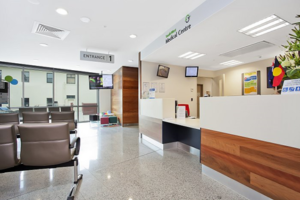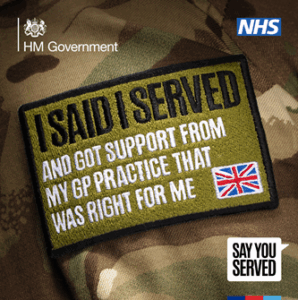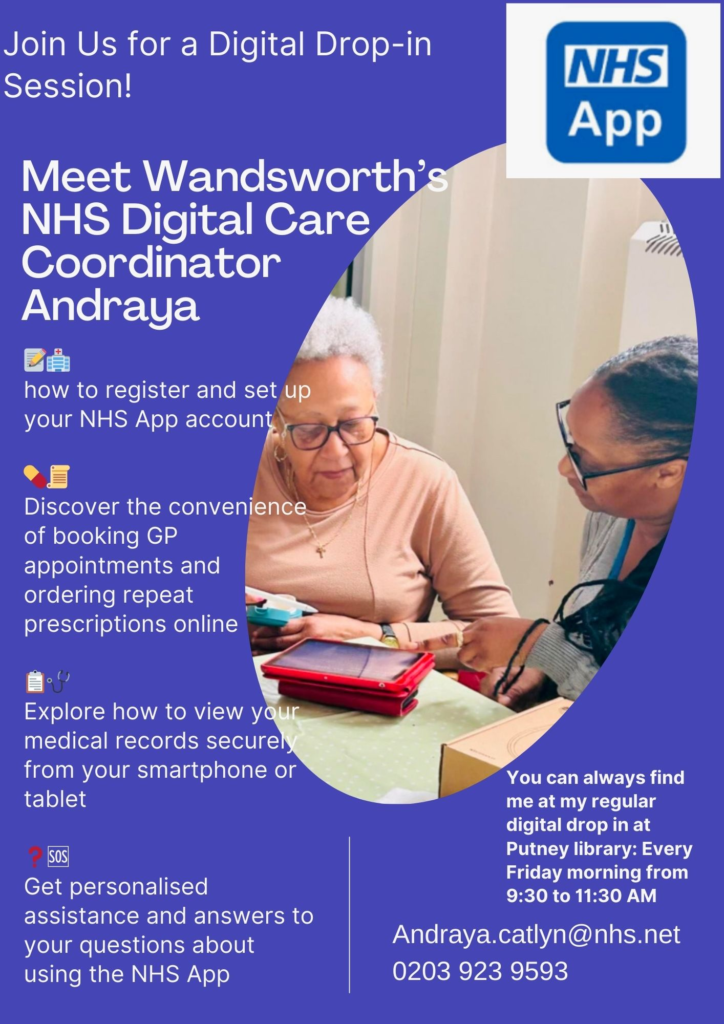Our practice is inspected by the Care Quality Commission (CQC) to ensure we are meeting essential standards of quality and safety.
Please click here for more information.
The Complaint Process
Chatfield Health Care
50 Chatfield Road
London SW11 3UJ
Tel: 020 3764 0822
e-mail: swlicb.chatield-health@nhs.net
Talk to us
Every patient has the right to make a complaint about the treatment or care they have received at Chatfield Health Care.
We understand that we may not always get everything right and by telling us about the problem you have encountered, we will be able to improve our services and patient experience.
Who to talk to
Most complaints can be resolved at a local level. Please speak to a member of staff if you have a complaint; all our staff are trained to handle complaints effectively. Alternatively, ask to speak to the Complaints Manager, Nirmal Jagdev, Deputy Practice Manager.
A complaint can be made verbally or in writing. A Complaints Form is available from reception. Additionally, you can complain via email to: swlicb.Chatfield-health@nhs.net
Alternatively you can send your complaint to South West London Integrated Care Board (SWLICB) by calling 0800 026 6082, or by email to contactus@swlondon.nhs.uk or by post to NHS South West London, 120 The Broadway, Wimbledon, London, SW19 1RH. You can not complain both. If you are unhappy with the local resolution from either GP Surgery or SWLICB, you can complain to the Parliamentary & Health Services Ombudsman (PHSO), details below.
Time frames for complaints
The time constraint on bringing a complaint is 12 months from the occurrence giving rise to the complaint, or 12 months from the time you become aware of the matter about which you wish to complain.
The complaints manager will respond to all complaints within three business days. Furthermore, they will provide regular updates for you regarding your complaint, whilst aiming to have the complaint completely resolved within 6 months.
Investigating complaints
Chatfield Health Care will investigate all complaints effectively and in conjunction with extant legislation and guidance.
Confidentiality
Chatfield Health Care will ensure that all complaints are investigated with the utmost confidentiality and any documents are held separately from the patient’s healthcare record.
Third party complaints
Chatfield Health Care allows a third party to make a complaint on behalf of a patient. The patient must provide consent for them to do so. A Third Party Patient Complaint Form is available from reception.
Final response
Chatfield Health Care will issue a final formal response to all complainants which will provide full details and the outcome of the complaint. Further information is detailed in our practice policy.
Independent Advocacy Support
If you feel you require or would like support in making your complaint, NHS Complaints Advocacy services can provide you with independent advice to help guide and support you through the process. Here are some options:
Healthwatch (Wandsworth)
Tel: 07434633745
information@healthwatchwandsworth.co.uk
Rethink Advocacy Independent Service (Wandsworth/Richmond)
Tel: 0300 7900 559
Wandsworth Care Alliance
Tel: 0208 516 7716 admin@Wandcareall.org.uk
Voiceability
Tel: 0300 303 1660
Further actions
If you are dissatisfied with the outcome of your complaint you can seek further guidance from:
NHS England
PO BOX 16738
Redditch B97 9PT
Tel: 03003 112233
Or alternatively complain to the:
Parliamentary Health Service Ombudsman
Milbank Tower
Milbank
London SW1P 4QP
Tel: 0345 015 4033
Primary Care Complaints Video
Declaration of GP Earnings 2021-2022
All GP Practices are required to declare mean earnings (i.e. average pay) for GPs working to deliver NHS services to patients at each practice.
The average pay for GPs working in the practice of Chatfield Health Care in the last financial year ending 31/3/23 the earnings are £44164.
This is for 3 full time GPs and 5 part time GP’s who worked in the practice for more than six months.
Non-NHS Services
Medical reports and Letters are a Non-NHS Service we offer to our patients. Please note it is not an obligatory service. We will therefore charge a fee for completion of this work. The NHS medical care of our patients takes priority during our working day. In accordance with GPDR we have a 28-day turnaround to complete such requests from when payment is received, however we endeavour to return sooner rather than later.
Do GPs have to do non-NHS work for their patients?
With certain limited exceptions (for example a GP confirming that one of their patients is not fit for jury service) GPs do not have to carry out non-NHS work on behalf of their patients.
Whilst GPs will always attempt to assist their patients with the completion of forms, they are not required to do such non-NHS work.
I only need the doctor’s signature – what is the problem?
When a doctor signs a certificate or completes a report it is a condition of remaining on the Medical Register that they only sign what they know to be true.
In order to complete even the simplest of forms therefore, the doctor might have to check the patient’s entire medical record. Carelessness or an inaccurate report can have serious consequences for the doctor with the General medical Council (the doctors’ regulatory body) or even the police.
Please do not book an appointment with your doctor to complete forms without checking first with the surgery’s administrative team as to whether you need to or not.
All requests must be in writing and either handed to the Patient Service-
Advisors at reception or emailed to us at swlicb.chatfield-health@nhs.net.
There is a £30 deposit for all requests and the turnaround for completion is
a period of 4 weeks; however, we endeavour to complete your request
as soon as possible.
For Private Medical Examinations a £60 deposit is required.
A member of the administration team will contact you to book an
appointment. Please note that these appointments are only available
once a week and therefore may take up to 8 weeks for your
appointment
Fit to Participate
Please be aware that our clinicians do not write or provide Fit to Participate letters for sporting activities.
Confidentiality & Medical Records
The practice complies with data protection and access to medical records legislation. Identifiable information about you will be shared with others in the following circumstances:
- To provide further medical treatment for you e.g. from district nurses and hospital services.
- To help you get other services e.g. from the social work department. This requires your consent.
- When we have a duty to others e.g. in child protection cases anonymised patient information will also be used at local and national level to help the Health Board and Government plan services e.g. for diabetic care.
If you do not wish anonymous information about you to be used in such a way, please let us know.
Reception and administration staff require access to your medical records in order to do their jobs. These members of staff are bound by the same rules of confidentiality as the medical staff.
Freedom of Information
Information about the General Practitioners and the practice required for disclosure under this act can be made available to the public. All requests for such information should be made to the practice manager.
Access to Records
In accordance with the Data Protection Act 1998 and Access to Health Records Act, patients may request to see their medical records. Such requests should be made through the practice manager and may be subject to an administration charge. No information will be released without the patient consent unless we are legally obliged to do so.
Violence Policy
The NHS operate a zero tolerance policy with regard to violence and abuse and the practice has the right to remove violent patients from the list with immediate effect in order to safeguard practice staff, patients and other persons. Violence in this context includes actual or threatened physical violence or verbal abuse which leads to fear for a person’s safety. In this situation we will notify the patient in writing of their removal from the list and record in the patient’s medical records the fact of the removal and the circumstances leading to it.
Private / Travel Vaccinations | ||
ALL fees must be paid in advance – no vaccinations will be administered until full payment is received (a receipt from reception must be shown to the practice nurse) *Free to NHS Patients | ||
Chicken Pox (per dose) | £75.00 | |
Chicken Pox Course (x 2 vaccinations)
| £150.00 | |
Hepatitis B Vaccine (same fee for NHS patients)
| Hepatitis B (per dose) | £40.00 |
Hepatitis B Course (x 3 vaccinations) | £120.00 | |
Hepatitis B Paediatric (per dose) | £20.00 | |
Hepatitis B Paediatric Course (x 3 vaccinations)
| £60.00 | |
Meningitis ACWY – Menveo (per dose)
| £85.00 | |
Yellow Fever (including Certificate) | £70.00 | |
Yellow Fever Replacement Certificate
| £20.00 | |
Private Prescription | £15.00 | |
All prices valid from 17th January 2024
Chatfield Health Care is an accredited Veteran Friendly GP Practice.

We are proud to support our Armed Forces community. Our accreditation shows we can deliver the best possible care and treatment for patients who have served in the armed forces.
As a Veteran Friendly GP Practice we:
- Have a clinical lead for veteran health
- Ask patients ‘Have you served?’ to identify veteran patients
- Support veteran patients to access dedicated health services
- Undertake specialist training to meet the health commitments of the Armed Forces Covenant
View our Armed Forces Veteran Friendly Accredited Practice certificate
Let a member of staff know if you, or your spouse/partner, have ever served in the UK armed forces. This will help us best support your care needs.
For more information on how the NHS can help if you are in the British Armed Forces or a veteran, a reservist or a family member of someone who has served please visit https://www.nhs.uk/nhs-services/armed-forces-community/
The Royal College of General Practitioners runs the scheme in partnership with NHS England.
Find out more on the Royal College of General Practitioners website.
This guide tells you what to expect from your general practice (GP) and how you can help them, so you get the best from the National Health Service (NHS). More details can be found through the link below:


